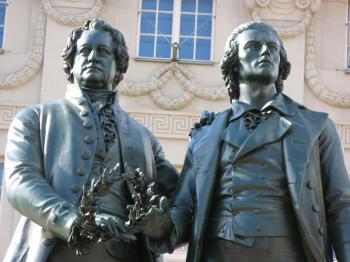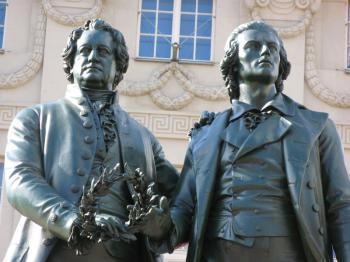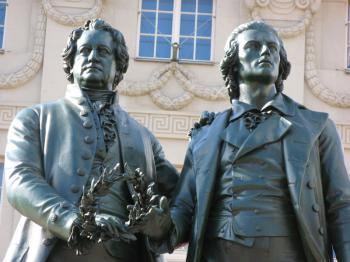Those who leisurely stroll through Weimar, a city of 60,000 which has not seen much automobile traffic, may wonder how this cozy place with its provincial airs has garnered importance.
Goethe spent most of his time in Weimar. Schiller, who suffered a severe illness, lived his last, most productive years in Weimar. The meeting of these two renowned German writers, their individual genius and their harmonious, constructive working together, based on friendship, laid the foundation in Weimar for what is now known as “German Classics.”
Their residency in Weimar was not an isolated phenomenon. The city held importance at different times and for varying reasons, events that relate to several of Germany’s history.
The so-called Golden Age, shaped by Goethe and Schiller, preceded the “Silver Era,” connected with the names of Franz Liszt, Richard Wagner, and Arnold Böcklin. The years between 1919 and 1933 are known as the “Weimar Republic.” Weimar’s German National Theater was the venue for the National Congress that gave the nation its first constitutional democratic document on German soil.
But the Weimar Republic failed, and the National Socialists eventually shamefully misused the city’s cultural heritage.
Hitler liked to stay in Weimar, and greeted jubilating masses from the balcony at the “Elephant Hotel.” Outside the city gates, at Ettersberg, the regime constructed the Buchenwald Concentration Camp, where thousands languished in agony and met their deaths.
After 1945, under East German Communist rule, those rulers used the same facility to incarcerate and mistreat enemies of the regime.
Weimar is small, but even a short stay won’t be enough to see all the sights, to take in the museums and commemorative places that are witness to her history. That is why, during this visit, my parameters were to discover what the wellspring might be for Weimar’s importance. Did this happen by chance, or are there recognizable events?



